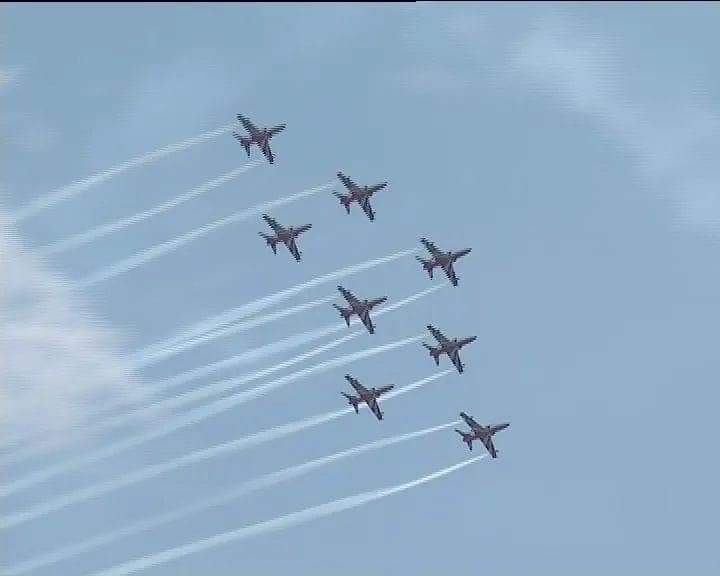Washington: The decision taken by General Electric to manufacture jet engines in India through transfer of technology is a landmark agreement, Prime Minister Narendra Modi said Thursday, noting that this will give India-US defence cooperation a “new character”.
GE aerospace has announced it has inked a pact with Hindustan Aeronautics Limited (HAL) to jointly produce fighter jet engines for the Indian Air Force’s Light Combat Aircraft (LCA)-Mk-II Tejas.
“The decision taken by General Electric to manufacture engines in India through transfer of technology is a landmark agreement,” Prime Minister Modi told reporters at a joint news conference with US President Joe Biden at the White House.
This also opens up new job opportunities in both countries, he said and added that “this will give our defence cooperation a new character in the times to come”.
“The defence industries and startups of both countries are important partners in this cooperation. Bringing them together is the key objective of our defence industrial roadmap,” Modi said.
In a joint statement, President Biden and Prime Minister Modi hailed the landmark signing of the MoU between GE and HAL.
“This trailblazing initiative to manufacture F-414 engines in India will enable greater transfer of US jet engine technology than ever before. The leaders committed their governments to working collaboratively and expeditiously to support the advancement of this unprecedented co-production and technology transfer proposal,” it said.
Modi said the close defence cooperation between India and the US symbolises the mutual trust and shared strategic priorities.
“Moving away from the old buyer seller relationship we had earlier, we have transitioned today to a relationship involving transfer of technology, co-development and co-production,” he said.
Expressing their desire to accelerate defence industrial cooperation, the two leaders in the joint statement welcomed the adoption of a Defense Industrial Cooperation Roadmap.
This will provide policy direction to defence industries and enable co-production of advanced defense systems and collaborative research, testing, and prototyping of projects. Both sides are committed to addressing any regulatory barriers to defence industrial cooperation, according to the statement.
Modi and Biden also noted the decision of India’s Ministry of Defence and the US’ Department of Defense to commence negotiations for concluding a Security of Supply arrangement and initiate discussions about Reciprocal Defense Procurement agreement.
They also welcomed India’s emergence as a hub for maintenance and repair for forward deployed US Navy assets and the conclusion of Master Ship Repair agreements with Indian shipyards, the statement said.
This will allow the US Navy to expedite the contracting process for mid-voyage and emergent repair.
It said as envisaged in the Defense Industrial Roadmap, both countries agree to work together for the creation of logistic, repair, and maintenance infrastructure for aircraft and vessels in India.
The two leaders welcomed the setting up and launch of the US-India Defense Acceleration Ecosystem (INDUS-X).
The statement said as a network of universities, startups, industry and think tanks, INDUS-X will facilitate joint defence technology innovation, and co-production of advanced defence technology between the respective industries of the two countries.
The US Department of Defense’s Space Force has signed its first International Cooperative Research and Development Agreement with Indian start-ups 114 AI and 3rdiTech. Both companies will work with General Atomics to co-develop components using cutting edge technologies in artificial intelligence and semiconductors respectively, said the joint statement.
PTI
